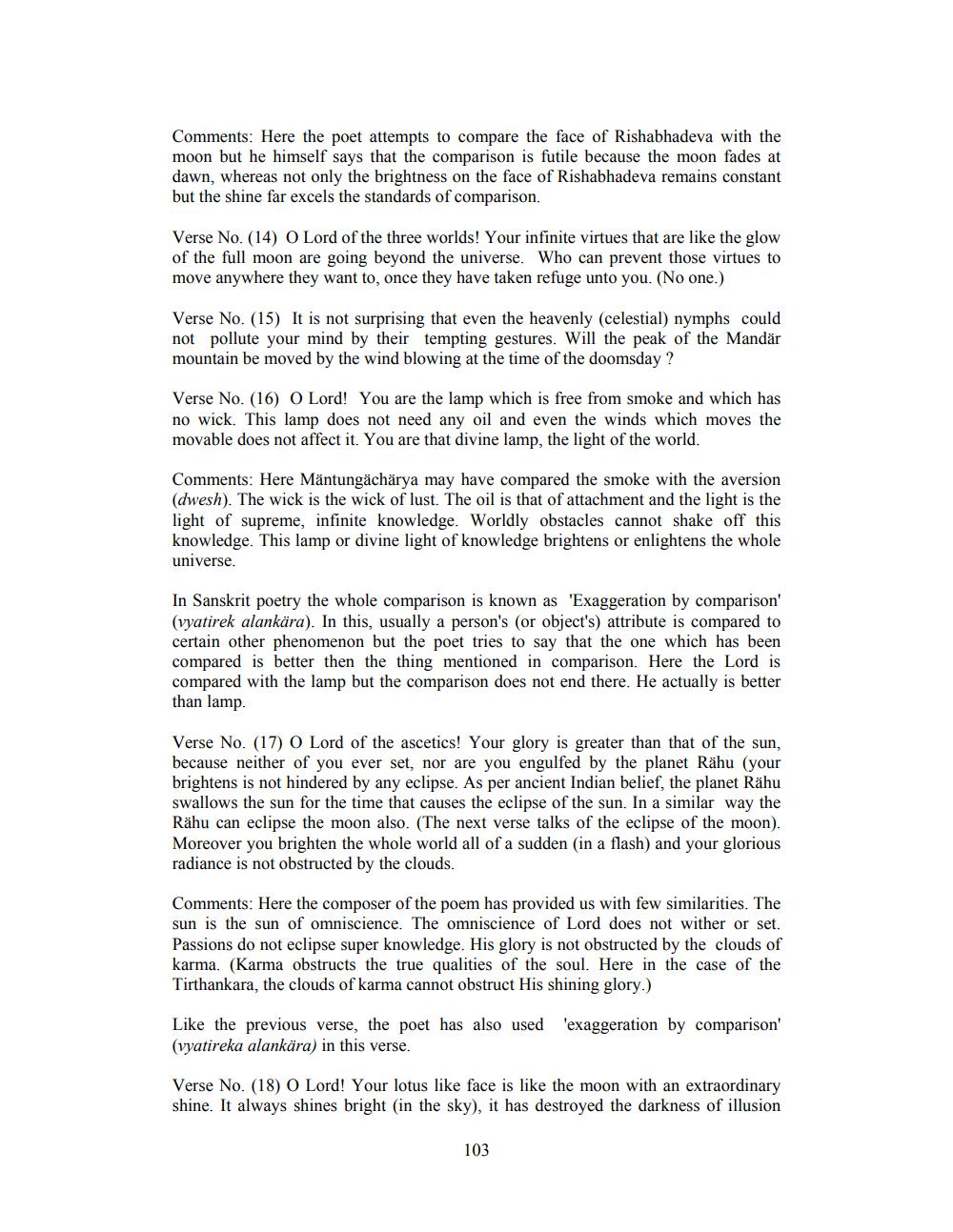________________
Comments: Here the poet attempts to compare the face of Rishabhadeva with the moon but he himself says that the comparison is futile because the moon fades at dawn, whereas not only the brightness on the face of Rishabhadeva remains constant but the shine far excels the standards of comparison.
Verse No. (14) O Lord of the three worlds! Your infinite virtues that are like the glow of the full moon are going beyond the universe. Who can prevent those virtues to move anywhere they want to, once they have taken refuge unto you. (No one.)
Verse No. (15) It is not surprising that even the heavenly (celestial) nymphs could not pollute your mind by their tempting gestures. Will the peak of the Mandär mountain be moved by the wind blowing at the time of the doomsday ?
Verse No. (16) O Lord! You are the lamp which is free from smoke and which has no wick. This lamp does not need any oil and even the winds which moves the movable does not affect it. You are that divine lamp, the light of the world.
Comments: Here Mäntungächärya may have compared the smoke with the aversion (dwesh). The wick is the wick of lust. The oil is that of attachment and the light is the light of supreme, infinite knowledge. Worldly obstacles cannot shake off this knowledge. This lamp or divine light of knowledge brightens or enlightens the whole universe.
In Sanskrit poetry the whole comparison is known as 'Exaggeration by comparison (vyatirek alankära). In this, usually a person's (or object's) attribute is compared to certain other phenomenon but the poet tries to say that the one which has been compared is better then the thing mentioned in comparison. Here the Lord is compared with the lamp but the comparison does not end there. He actually is better than lamp.
Verse No. (17) O Lord of the ascetics! Your glory is greater than that of the sun, because neither of you ever set, nor are you engulfed by the planet Rähu (your brightens is not hindered by any eclipse. As per ancient Indian belief, the planet Rähu swallows the sun for the time that causes the eclipse of the sun. In a similar way the Rähu can eclipse the moon also. (The next verse talks of the eclipse of the moon). Moreover you brighten the whole world all of a sudden (in a flash) and your glorious radiance is not obstructed by the clouds.
Comments: Here the composer of the poem has provided us with few similarities. The sun is the sun of omniscience. The omniscience of Lord does not wither or set. Passions do not eclipse super knowledge. His glory is not obstructed by the clouds of karma. (Karma obstructs the true qualities of the soul. Here in the case of the Tirthankara, the clouds of karma cannot obstruct His shining glory.)
Like the previous verse, the poet has also used (vyatireka alankära) in this verse.
exaggeration by comparison
Verse No. (18) O Lord! Your lotus like face is like the moon with an extraordinary shine. It always shines bright in the sky), it has destroyed the darkness of illusion
103




